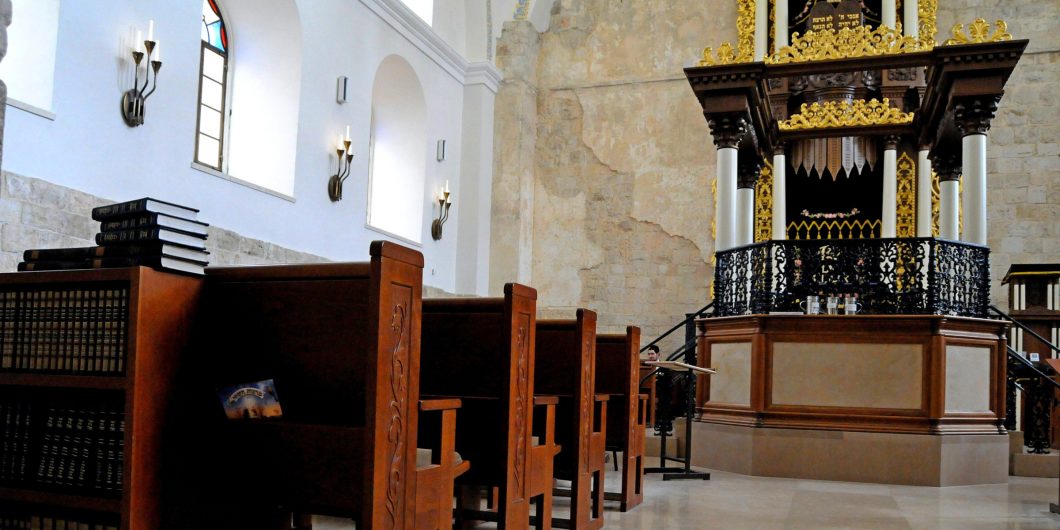Is Kant a Friend of Jerusalem?
The 18th century gave us the three ethical systems most associated with liberalism. Hume and Smith developed the theory of the moral sentiments, Bentham the greatest happiness principle of utilitarianism, and Kant the categorical imperative. David Novak observes that Kant’s articulation of a rational moral principle vouchsafing like-treatment for all was warmly welcomed by Jews hoping to gain membership in Europe’s nation states in the eighteenth and nineteenth centuries. Jews also adopted Kant’s moral universalism because the categorical imperative is expressed as a law, as are the biblical commandments. Novak contends that more than any other philosopher, Kant has resonated with Jewish thinkers for good reason—he helped Jerusalem find a home in Athens.
Yet, the hint of a problem is that in our universities, Kant is the great darling of secular liberals. Yoram Hazony knows why. Author of the prize-winning, The Virtue of Nationalism, Hazony identifies Immanuel Kant (1724-1804) as the architect of globalism. Kant’s moral universalism culminates in the claim that the nation state must cede authority to institutions of international governance: only once the selective interests of the nation evaporate can a universal moral affirmation of equal personal dignity be truly anchored in the world. Though embattled from the far left by postmodernism, and from the right by nationalists like Hazony, Kantian globalism has strong redoubts in universities and think-tanks throughout the West. These secular redoubts, Hazony believes, are responsible for a good deal of anti-Israeli sentiment.
Athens and Jerusalem is the product of David Novak’s Gifford Lectures. To be invited to give these lectures is theology’s Nobel Prize. Delivered in Scotland at Aberdeen University in 2017, Novak explains that classical Jewish theology combines Torah and metaphysics. It defends the claim that the Word of God revealed in the Torah offers the best theoretical and practical guide to human life. Though jargon-free and written in a direct style, Athens and Jerusalem is an academic work as befits its prestigious origins.
Readers of Law & Liberty know that a book with the title Athens and Jerusalem must address the politically fraught relationship between philosophy and theology identified by Leo Strauss. Does working in tandem with Kant make any sense for a classical Jewish theologian, as Novak defines himself? Is the book’s project coherent?
When an undergraduate at the University of Chicago, David Novak met few scholars with any sympathy for his interest in doing Jewish theology in a rigorously philosophical manner. In Chicago’s intellectual world, Athens and Jerusalem were indifferent to one another. After World War I, philosophy in English and American universities became mostly a methodological practice. It became little more than a tool to assist in concept clarification: e.g. philosophers can help brain researchers not get muddled about the words they use in their explanations of brain events. Judaism, like every other religion, has nothing to add to philosophy’s ability to do this sort of intellectual house-cleaning.
Prior to the Great War, philosophy was far more ambitious. Leading philosophers unspooled comprehensive doctrines as they sought to explain reality as such: Leibniz said reality was monads, Berkeley that it was mental, and Schopenhauer that it was will. This sort of philosophy also has no need of Judaism, or any other religion. It is a straightforward competitor with the world religions. This is what Novak heard when he sat in the lectures of Leo Strauss. Athens was not merely disinterested in Judaism, it meant to supplant it, and all religious belief. If this was not the answer Novak wanted to hear, Strauss at least acknowledged the seriousness of his questions. Strauss’s lectures not only legitimated Novak’s quest, they gave direction to his future life. In contrast to his interlocutors, Novak came to believe that Jewish theology needs philosophy to keep its own language clear.
Under the influence of Aquinas, Catholicism has mostly had a serene relationship with philosophy. Quick to see his dissent from Strauss, Novak continued his education at Georgetown, where he wrote his doctorate with the influential Catholic thinker, Germain Grisez. Novak’s argument reveals the influence of the Jesuit university. Favourable to Kant, but seeing the need to correct him at points, Novak relies on elements prominent in Catholic social thought: distributive justice, trust, tradition, and marriage.
Readers who also follow First Things will recognize Novak’s name as he was a frequent contributor to that magazine during the tenure of Father Richard John Neuhaus. Those were heady days for believers. The rise of political Islam was mirrored by a resurgence of political Catholicism in the papacy of St. John Paul II, and American Evangelicals had the political wind in their sails. Never flinching from struggle, Neuhaus was sure the republic was elastic enough to house, and be instructed by, Judeo-Christianity. The importance of Athens and Jerusalem is that it retains Neuhaus’s confidence at a moment when few still do. The grip of Jerusalem on the culture is waning: our basic disputes about identity, family, property, authority, and rule of law, all betoken that marginalization. Day by day, it seems, Athens confirms Strauss’s warning to the young Novak.
According to Novak, Judaism has had to contend with three main comprehensive philosophical systems: Platonism, Aristotelianism, and Kantianism. These audacious systems speak to all the primary relationships: human to nature; human to human; human to divine; and divine to nature. In Novak’s telling, the first Jewish philosopher is Philo (died circa 50 AD). He confronted a Platonism that looked on Judaism as markedly primitive. The highly sophisticated Hellenism of ancient Alexandria saw the ideas of the Bible as fit only for rubes; an opinion shared at the time by many Jews, who were leaving the Jewish community in droves. Platonism is the theory that reality is structured by abstract principles of explanation that are eternal and transcendent. The famous Platonic Ideas explain all the primary relationships. To the Alexandrians, Philo argued that Judaism’s “value-added” is to make the abstract concrete: the cosmos is both intelligible and beneficent, because it is ruled with a care exercised by a lawmaker. Before this law all are equally unequal: God is utterly transcendent and no matter who one is, all fall under the same rule of law. Reverence for the Torah makes us humble and elevates us at the same time. If all are equally unequal under a common law then, argued Philo, slavery is incompatible with rule of law.
The moral story of the Torah is the history of a personal God wanting to build up a people. The unique historical interaction between God and Israel is a story of trust.
The greatest of all Jewish philosophers, Maimonides (d. 1204) wrestled with the scientific orthodoxy of his time, Aristotelianism. Aristotle’s astrophysics divided the cosmos into the celestial and terrestrial. The terrestrial moved in imitation of the celestial, which itself moved in imitation of the divine, Aristotle’s Unmoved Mover. The idea that world events happen through the causal influence of the celestial bodies spawned, to Maimonides, magical thinking, where human actions were deducible from astrology. Maimonides positively rails against magic, insisting that a caring divine rule allots to human acts a true liberty, requiring a conscious affirmation or dissent from the law. The broader terrestrial world might be under the strict control of astrophysics, but the Torah makes better sense of the human experience of being freely obedient to laws we believe build us up.
For in modernity, the most cogent denials of revelation have been made on ethical, not epistemological, grounds. What offends many moderns most about revelation is its inherent rejection of the moral autonomy of human persons, something consistently celebrated in modernity.
I do not disagree with Novak’s summary of the central holding of modernity, but I wish he had said more about the contemporary variants of the Platonic and Aristotelian challenges. Hellenistic aesthetics are alive and well in America’s great cities and metropolitan elites still feel that biblical ideals are worthy only of rubes. The determinism of Aristotle’s cosmology repeats in Darwinism and today’s intellectual establishment cherishes invisible systemic causes and collective guilt.
Philo argued that the Torah clarifies rule of law and Maimonides free obedience to law. It fell to Hermann Cohen (1842-1918) to face the great moral challenge of Kant, a challenge Novak and Hazony both agree is on-going. In a way, Kant performed a judo move on Judaism: he showed that it is the very meaning of being rational that persons freely give to themselves a universal moral law. Through Kant, the legacy of Philo and Maimonides to the West is revealed to come from Athens (reason) and not Jerusalem (Torah) after all. Responding, Cohen offered a nifty trick of his own. The moral law cannot come from God: Kant shows it is co-terminus with rationality as such. So instead, Cohen argues that the God of the Torah is a moral exemplar, an ideal the moral beauty of which provokes us to ever greater moral progressivism. God’s solicitude for humankind becomes the stimulant for our love of humankind: Torah is the engine room of liberal global humanitarianism.
Hazony might choke on Cohen’s formulation but Novak dissents, too. Understandable for historic political reasons, Cohen’s alacrity to adopt Kant’s universalism betrays true personalism. Kant is biblical, argues Novak, in setting ethics at the heart of things (this is why Kant calls one of his most famous books, The Metaphysics of Morals). However, rational self-legislation of universal moral law locks the Kantian person in metaphysical isolation, and so Kant’s teaching is marked by a formalism that obscures a more original value relationship persons have with one another.
The moral story of the Torah is the history of a personal God wanting to build up a people. The unique historical interaction between God and Israel is a story of trust. In Catholic social thought, formal moral arrangements and community legislation can only operate on a deeper foundation of trust (what Pope Benedict calls distributive justice). This trust is not a set of enacted rules, but a subtle inheritance of a common life woven from the tight bonds of marriage and families ambling along making lives together. This inherited common life is not a rational algorithm. The story of God’s relationship with Israel is a crucial reminder about the role trust plays in moral order. The moral grandeur of Kant becomes mangled if it forgets this prior foundation. Novak is confident, in other words, that Athens cannot thrive without Jerusalem.
This reply to Strauss is also a likely reply Novak would make to Hazony. Against Kant, they agree that moral discernment requires discrete communities of fellowship and sympathy. Unsurprisingly then, Novak is a defender of Israel, but he criticizes unnamed theorists for minimizing the otherness of God. Forgetting that the Jewish experience is not messianic but apocalyptic, some are apt to run together the veneration of Torah with the state of Israel. No polity, whether Israel or America, will be healthy if it confuses God and the state. God, we might say, is all about making dramatic entrances: the ideal, therefore, is not a fusion of Athens and Jerusalem but thoughtfully meeting the abiding challenge of Athens and Jerusalem.



